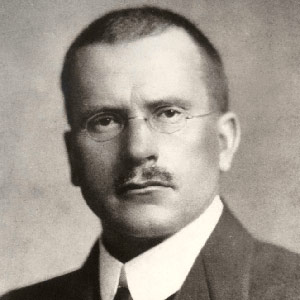Everything we are is a reflection of greater powers than we can know, and our true strength comes in aligning ourselves with them.
Pain is a universal condition. I’m talking about inner pain: depression, guilt, regret, anger — any of a thousand different negative emotions that tear us apart.

Pain begins when life goes against our expectations and desires. Distress goes through us. It’s uncomfortable, and not liking it, but not knowing how to deal with it, we resist it and push it away. In our efforts to get free of the pain, we find someone or something to blame (possibly even ourselves), blame leads to hate, and hate leads to taking actions and dwelling on punishing thoughts that accomplish nothing but increase our pain.
But there’s something else we can do with our pain. We can begin to see it as a signal to look inside ourselves. An athlete who feels a physical pain knows it’s time to see what he or she is doing wrong that’s causing the discomfort. In the same way, psychological pain tells us we’re doing something wrong that’s harming us — making us unhappy and putting us at enmity with life.
Pain is God’s megaphone to rouse a deaf world.
— C. S. Lewis (1898)
Throughout time the great sages have taught us that pain, used properly, is an invitation to enter a new level of ourselves that knows how to use the frustrations of life to grow stronger, more in command, more self-reliant, and less resentful when things don’t go our way.
Suffering, if it does not diminish love, will transport you to the furthest shore.
— Buddha (560 B.C.E.)
Of course, disappointment is inevitable in life, and when things don’t go as we wish, we can’t help but react. But as we see things from a higher level of understanding, we know how to deal with this pain in a more healthy way than by chewing over in our minds thoughts and images that we don’t like looking at.
You cannot prevent the birds of sadness from flying over your head, but you can keep them from building nests in your hair.
— Confucius (551 B.C.E.)
We begin to take responsibility for our own reactions, and are willing to recognize what we ourselves do to keep the pain going (by reliving painful experiences and letting resentment grow). Seeing where we’ve been wrong can be painful, but it’s the conscious suffering that transforms us.
There is no coming to consciousness without pain. People will do anything, no matter how absurd, in order to avoid facing their own soul. One does not become enlightened by imagining figures of light, but by making the darkness conscious.
— Carl Jung (1875)
Every great religion talks about how we can learn to use suffering to ultimately become free of suffering. It’s the basis of our transformation into the whole, healthy, happy people we are meant to be.
Here’s a Taste of Helpful Wisdom on a New Way to Deal with Painful Circumstances
In this helpful video Guy Finley answers a viewer’s question about “Learning to Use a Negative Coworker for Your Spiritual Growth.”
Guy Finley regularly receives questions from people around the world. Sometimes he’ll record Q&A sessions where one of the Life of Learning students reads questions people have sent in, and Guy answers them.
Here’s a Q&A that is on point with our discussion of how to meet painful moments in a new way. It throws light on a situation that many of us face, and it will give you a few laughs too, so click the video link below to Learn to Use a Negative Coworker for Your Spiritual Growth:
Does your tradition talk about the possibility of dealing with pain in a way that enhances your life? If so, can you share a quotation about it with us? What a blessing it would be to reduce the level of pain in the world. So, please click here to submit your quotation to the OneJourney Living Book!
Best wishes,
Dr. Ellen Dickstein
The OneJourney Project









